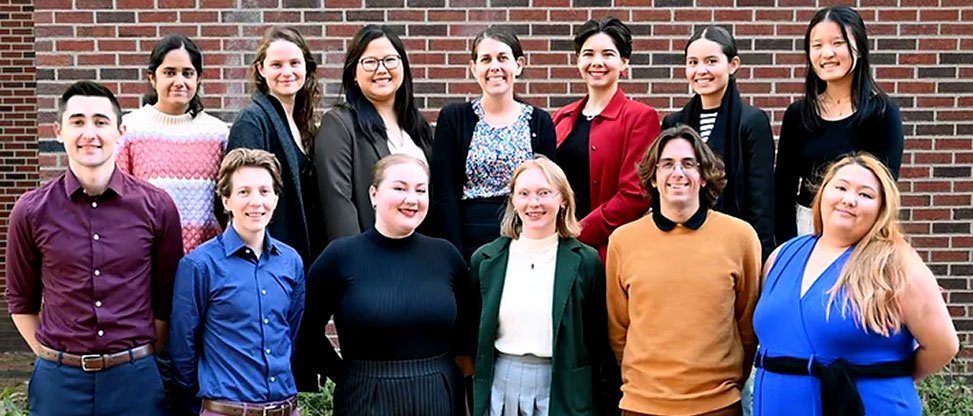Elizabeth 'Betsy' Parkinson
Dr. Elizabeth 'Betsy' Parkinson is an Assistant Professor in the Departments of Chemistry and Medicinal Chemistry ad Molecular Pharmacology at Purdue University. Attending Rhodes College, she obtained her B.S. in chemistry in 2010. While in Memphis, she did undergraduate research with Dr. Philip Potter at St. Jude Children's Research Hospital on the discovery and development of specific carboxylesterase inhibitors for the amelioration of the dose limiting toxicity of the anticancer agent irinotecan.
Betsy conducted graduate research with Prof. Paul Hergenrother at the University of Illinois at Urbana-Champaign, UIUC. While there, she discovered the mechanism of the selective anticancer natural product, deoxynyboquinone, and developed derivatives with improved solubility and tolerability. She also studied the mechanism of deoxynybomycin, a natural product antibiotic with specific activity against fluoroquinolone resistant bacteria, and developed more soluble derivatives.
After obtaining her Ph.D. in 2015, Betsy joined the laboratory of Professor William Metcalf in Microbiology at UIUC. During her postdoctoral studies, she worked on a new method of identifying novel natural products called metabologenomics as well as studying the biosynthesis of peptide and phosphonate natural products. Subsequewntly, Betsy started her laboratory in the Departments of Chemistry and Department of Medicinal Chemistry and Molecular Pharmacology at Purdue University in the Fall of 2018. In her lab, research focuses on the discovery of natural product biosynthetic enzymes that perform unique and challenging reactions, including peptide cyclization, and the application of these enzymes as biocatalysts. She has also developed novel approaches for identifying bioactive peptide natural products with promise as leads for urgent health challenge. In addition to her efforts in natural products, she has also designed stapled peptides to inhibit challenging targets including the transcription factor Nrf2, an important anticancer target.
 Members in the Parkinson Lab.
Members in the Parkinson Lab.


